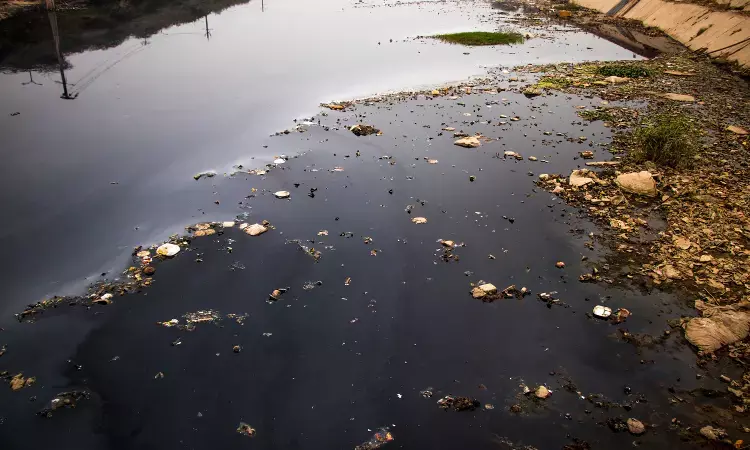- Home
- Medical news & Guidelines
- Anesthesiology
- Cardiology and CTVS
- Critical Care
- Dentistry
- Dermatology
- Diabetes and Endocrinology
- ENT
- Gastroenterology
- Medicine
- Nephrology
- Neurology
- Obstretics-Gynaecology
- Oncology
- Ophthalmology
- Orthopaedics
- Pediatrics-Neonatology
- Psychiatry
- Pulmonology
- Radiology
- Surgery
- Urology
- Laboratory Medicine
- Diet
- Nursing
- Paramedical
- Physiotherapy
- Health news
- Fact Check
- Bone Health Fact Check
- Brain Health Fact Check
- Cancer Related Fact Check
- Child Care Fact Check
- Dental and oral health fact check
- Diabetes and metabolic health fact check
- Diet and Nutrition Fact Check
- Eye and ENT Care Fact Check
- Fitness fact check
- Gut health fact check
- Heart health fact check
- Kidney health fact check
- Medical education fact check
- Men's health fact check
- Respiratory fact check
- Skin and hair care fact check
- Vaccine and Immunization fact check
- Women's health fact check
- AYUSH
- State News
- Andaman and Nicobar Islands
- Andhra Pradesh
- Arunachal Pradesh
- Assam
- Bihar
- Chandigarh
- Chattisgarh
- Dadra and Nagar Haveli
- Daman and Diu
- Delhi
- Goa
- Gujarat
- Haryana
- Himachal Pradesh
- Jammu & Kashmir
- Jharkhand
- Karnataka
- Kerala
- Ladakh
- Lakshadweep
- Madhya Pradesh
- Maharashtra
- Manipur
- Meghalaya
- Mizoram
- Nagaland
- Odisha
- Puducherry
- Punjab
- Rajasthan
- Sikkim
- Tamil Nadu
- Telangana
- Tripura
- Uttar Pradesh
- Uttrakhand
- West Bengal
- Medical Education
- Industry
Pharma antibiotics polluting Indian rivers, says Toxics Link study

New Delhi: As if pollution from plastic, industrial effluents, and sewage was not enough to damage the health of Indian rivers, a new study has found that they are now prone to pollution from antibiotic residues.
Released on Friday, a new study by Toxics Link, 'Menace of Antibiotic Pollution in Indian Rivers' has raised serious concerns over antibiotic residues found in river water samples from four Indian rivers, i.e., Yamuna (New Delhi), Gomti (Lucknow), Zuari (Goa) and Cooum (Chennai).
The study finds Indian rivers contain antibiotic residues that may contribute to the growing problem of 'antimicrobial resistance' and negative effects on the ecosystem and human health.
Three antibiotics, namely, Ofloxacin, Norfloxacin, and Sulfamethoxazole were detected in these river water samples. Ofloxacin (0.71 Aug/L) and Sulfamethoxazole (0.2 Aug/L) were found in the Yamuna and Norfloxacin (0.93 Aug/L) was detected in the Zuari. Ofloxacin (0.54 Aug/L) was also present in the Gomti and Cooum.
"All the antibiotics detected are found to be 2 to 5 times higher than the draft notification limits proposed by the Ministry of Environment, Forest, and Climate Change for the respective compounds," said Toxics Link's Programme Coordinator, Omkar Gaonkar.
The sample size in this study is limited; however, the findings of this study are alarming and highlight the potential possibility of widespread antibiotic pollution in the country, a release from Toxics Link said.
"Most importantly, the locations where antibiotic residues are detected are not necessarily in close proximity to major pharmaceutical industrial hubs. Therefore, the study raises concerns on the sources of antibiotic residues into these rivers which can be from both treated as well as untreated sewage," observed Toxics Link Associate Director Satish Sinha.
Antibiotics are important life-saving medicines and play a key role in the wellbeing of human health. However, indiscriminate use and lack of regulatory standards for antibiotics in effluents from pharmaceutical industries is leading to this major health hazard, more so for India as aceIndia is one of the major users and producers of antibiotics in the world and is more prone to the ill effects of antibiotic pollution," said Toxics Link Senior Programme Coordinator Piyush Mohapatra.
Read also: Bulk drugs PLI Scheme: Minister interacts with Pharma companies
Medical Dialogues Bureau consists of a team of passionate medical/scientific writers, led by doctors and healthcare researchers. Our team efforts to bring you updated and timely news about the important happenings of the medical and healthcare sector. Our editorial team can be reached at editorial@medicaldialogues.in.


